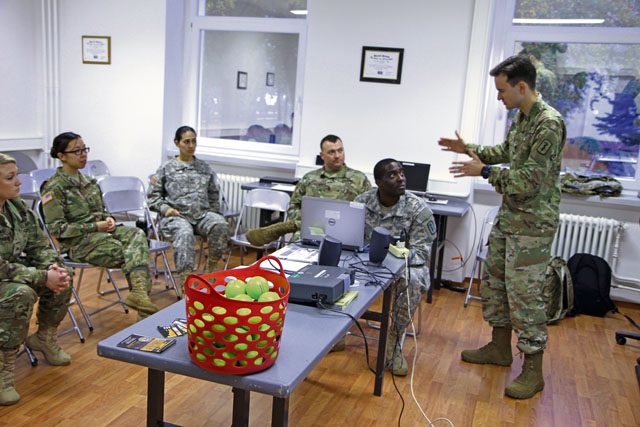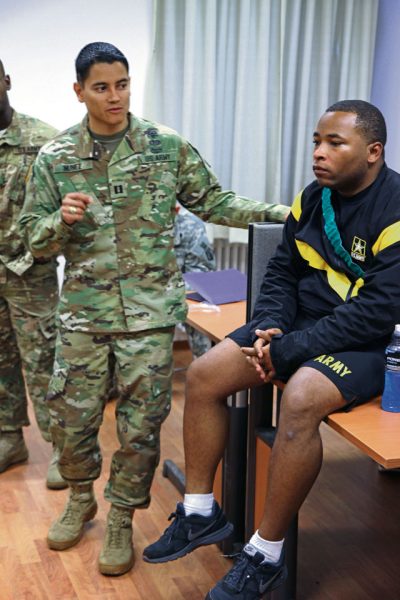
How many hours of sleep do you need every night?
Army Lt. Col. Robert V. Parish, commander of the 254th Medical Detachment and a clinical neuropsychiatrist, gave a “train the trainer” lesson in the science of sleep in a briefing Oct. 22 on Daenner Kaserne.
He, and Army Capt. Sway Nunez, spoke to Army Reserve medical professionals of the Medical Support Unit — Europe of the 7th Mission Support Command.
The hour-long presentation was designed to inform the Soldiers of the MSU of the scientific and defense community’s latest research relating sleep to the warfighter’s physical well-being.
Parish surveyed his audience for their sleep patterns and concluded that many Soldiers and adults in modern times often do not sleep as well as they should. The reasons include work, study, life habits, family responsibilities and other stress, he said.
Most people sleep in a 90-minute pattern and should get seven and a half hours a night to be considered truly rested.
“Eight to be great,” said Parish of the target sleep duration most adults need.
Parish also explained that when humans habitually sleep less than eight hours, but more than five, they may feel well because their motor functions are fine. Their decision-making, risk analysis and planning, however, can be as poor as a person who has not slept in 36 hours.
“When this sets in, cognitive compromise results,” Parish said. “The results are poor concentration, diminished problem-solving skills and less emotional control.”
Sleep is starting to be considered as important as hydration for military operations, he added. The Army is considering how to prioritize sleep for its operational leaders to avoid making bad or even dangerous decisions affecting Soldier’s lives and mission effectiveness.
Current studies are also giving support to the old wisdom that a quick nap, if done before 3 p.m., is one of the simplest remedies to make up for lost sleep, Parish said. More research is being done about the issue.
“LeBron James gets 12 hours of sleep a night in post season tournament play, and he’s arguably the best player in professional basketball,” said Parish, to help explain how sleep is connected to performance.
Parish said that he even believes many marital issues could be solved if both partners simply got more sleep.








